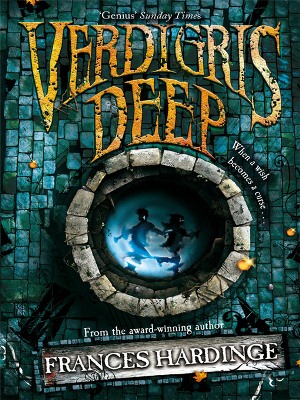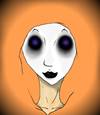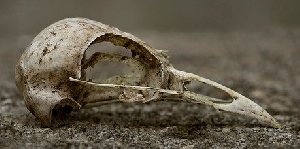
Verdigris Deep
Well Witched (US Title)
by Frances Hardinge
HarperCollins, 2008
400 Pages
Young Readers
The story opens with three kids stuck in a “bad area.” Ryan Doyle, Josh Lattimer-Stone, and Chelle Cooper can still catch the last bus home, but they don’t have the fare. Josh has a solution: the wishing well. All the spare change they’ll need.
The story is rooted in the supernatural, but it’s not really horror despite a few scary scenes. Though the length of the book may be suited more for young adult audiences than mid-grade, the imaginative and skillful writing truly sets Hardinge a step above. The author develops the relationships between the characters masterfully, describing the trust that is the foundation of Ryan’s friendship with Josh and showing the progression of a bond of respect between Ryan and Chelle as they face some tough ethical challenges together.
The smile was only a smile when the book was the right way up. When you inverted the picture, the thing that had been her smile became a terrible clenched-teeth, down-turned frown, and her eyes were upside down.
Josh was the only person Ryan had ever told about the way the picture frightened him. It had shown him that if you looked at things from a new angle, they could suddenly become unfamiliar and scary. It became important to see things in as many different ways as possible, so they couldn’t catch you by surprise.
The kids soon discover that they have each been “gifted” with magical powers in order to help the well witch fulfill her burden of granting wishes, each in accordance with their personalities. Ryan grows eyes on his hands that allow him to see the magical world, even in the dark and underwater; Chelle, (who talks incessantly anyway,) can hear and vocalize thoughts from the person who made the wish; and Josh is able to control electricity and conductive metals, making the fuse box in his house overload at will. How is that suited to Josh? As the story progresses, we learn how interested he is in power and control over his environment.
Thinking back, Ryan was suddenly quite certain that if Chelle had been the only person to see the spider run across her berries, she would have eaten them without qualms. It was Josh talking as if they were dirty that had poisoned them for her. Poor Chelle, always waiting to find out what she was allowed to think or feel.
Ryan is pulled into visions hosted by the once-goddess in the well, and, using Chelle as a Geiger-counter, they patrol the neighborhood the well-witch gurgles at him looking for the wishers. Though the witch is difficult to understand, it is clear that they must grant the wishes attached to the coins they removed from the well before people notice the word-soup pouring out of Chelle and the eyes on Ryan’s hands. It seems like a straight forward story, they just have to grant a few more wishes and wrap things up to be released from their bond before school begins. Instead, it suddenly turns deadly.
altering them entirely
The body of the baby girl belonging to an unmarried young woman was found floating in a canal in Magwhite years before. Branded The Magwhite Well Cult, three men had claimed they were forced to commit the murder by the side of the Well of St. Margaret the White. Chelle has an older woman living with her family, named Mrs. Gossamer, and it was old Miss Gossamer’s baby girl they found in Magwhite. The “magic men” who stole her baby had special gifts identical to those of Ryan, Josh, and Chelle. When she recognizes the magic in the kids, Miss Gossamer turns into a creature of hate, dedicated to destroying the three “Well’s Angels.”
Wishes that must be granted verbatim turn sour after a carnival is destroyed (thanks to a disgruntled actor,) and Will Wruthers, who was happy to finally win a Harley-Davidson, has a crash. Ryan realizes that the intention of a wish is more like a conker, (that’s a horse-chestnut or ‘buckeye,’ for Americans,) with a rough, spiky wish on the outside that doesn’t necessarily reflect the true wish that is in the person’s heart when they cast a coin into the well. And who says the spirit of a wishing well has to be good?
There’s the green prickly bit on the outside, and there’s the real solid conker on the inside. I think wishes are a bit like that. There’s an outer bit which is what the wish seems to be, but there’s another bit inside which is kind of the real wish…
The shell bit of the wish might be ‘I wish I had a Harley-Davidson.’ …that was just the green spiky bit of the wish. Inside there was this shiny nut bit of wish. Which was ‘I wish I were the kind of person who …everybody saw riding by on a Harley-Davidson,’ so they would think, ‘Wow, look at that guy on the Harley, I bet he’s really cool and interesting and exciting.’
Then Josh goes a little nuts and goes back to the well by himself. Starting to really enjoy his special powers, he looks for a way to keep them, leaving Ryan and Chelle to figure out how to un-grant the wishes for the good of the people who wished them. But that puts them at odds. Josh has never had a close family, and he’s looking in the wrong place with a pocket full of change.
Hardinge deftly ties up the loose ends, and I especially like the fact that the “happy ending” respects what Ryan would truly be feeling, given what has transpired between him and Josh. So many other stories might end by trying to gloss over it and forgive all because, after all, he had been possessed. All the loose ends… except one that I noticed (perhaps purposely)— “what ring, Josh?”
Perhaps finally getting into serious trouble had made [Chelle] less worried about the prospect. Ryan had learned that cornflakes still existed after the Apocalypse. Perhaps Chelle had discovered that there was still life after trouble.




The common name “horse-chestnut” (often unhyphenated) is reported as having originated from the erroneous belief that the tree was a kind of chestnut (though in fact only distantly related), together with the observation that eating the fruit cured horses of chest complaints. ,`-;
With best regards
http://www.healthwellnessbook.comci